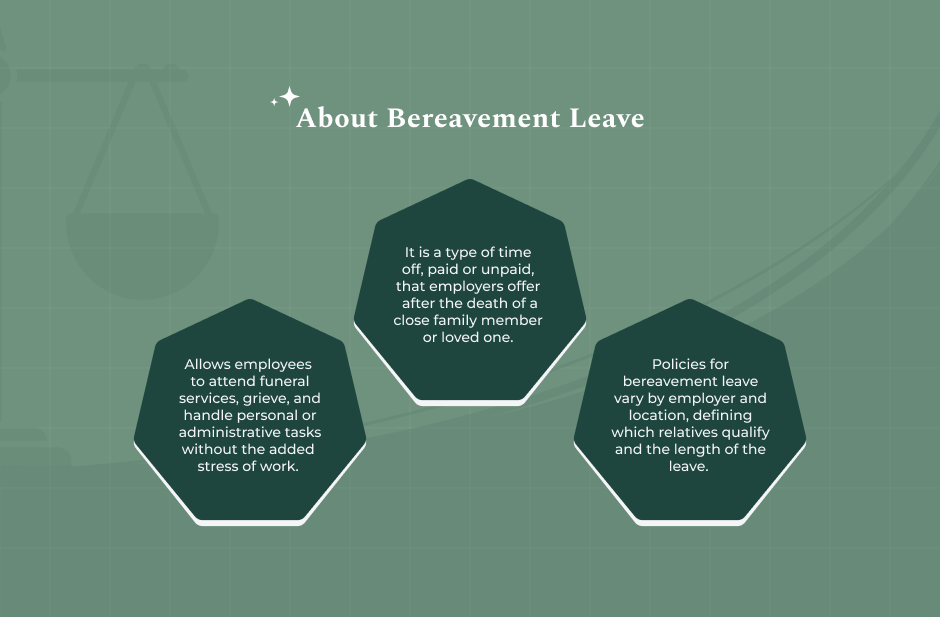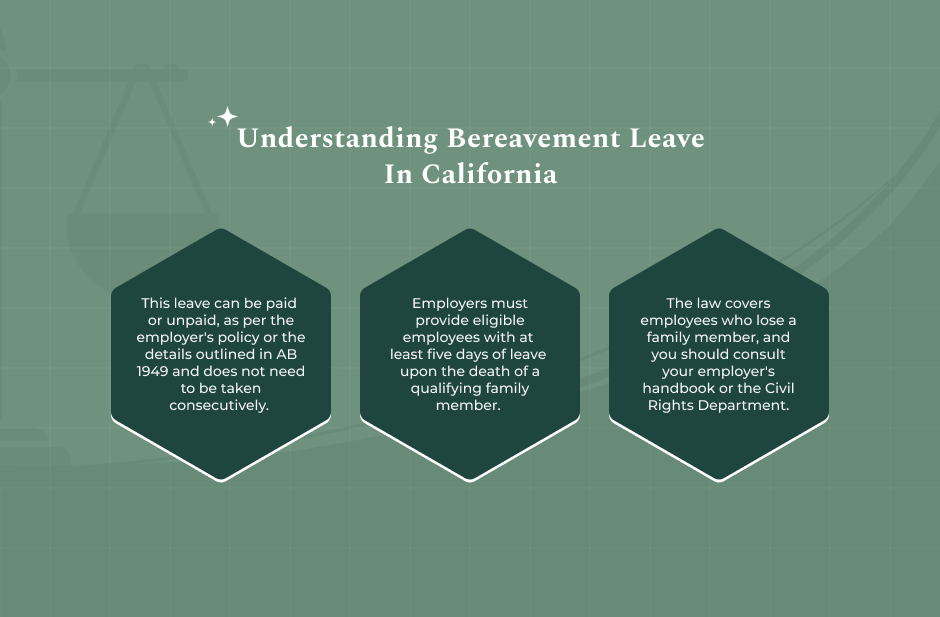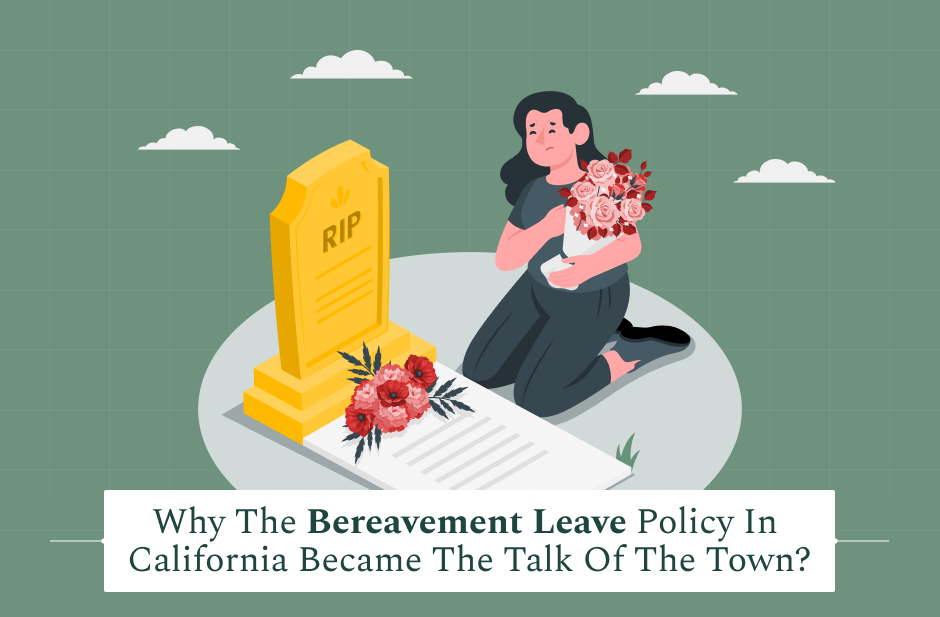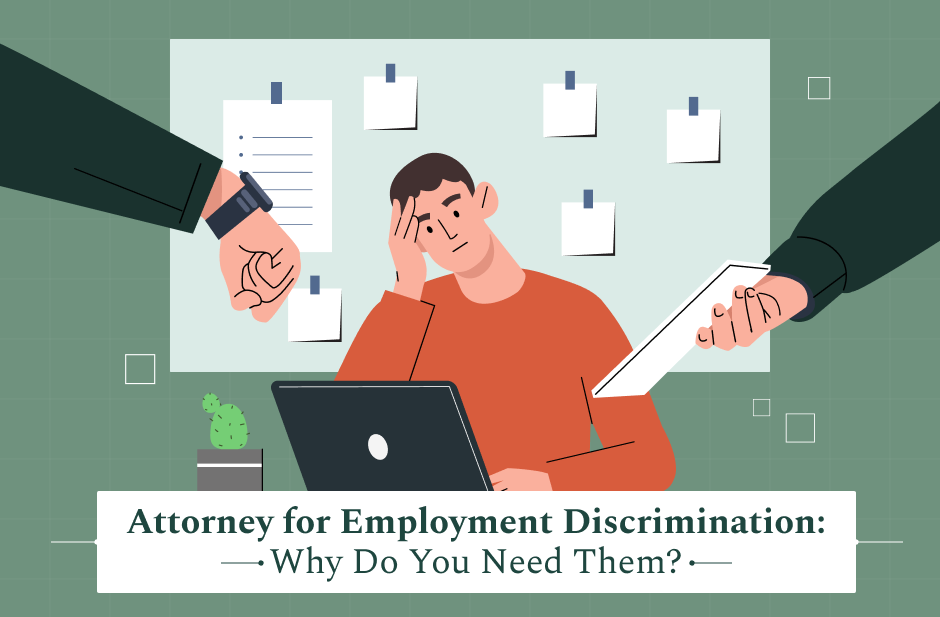- The year 2022 saw a major change in California with the passage of State Assembly Bill (AB) 1949, which redefined the California Family Rights Act (CFRA) to include a bereavement leave provision.
- The new law mandates that a worker eligible for bereavement leave can take up to five days off without pay, provided that employers have a minimum of five staff members. The leave will be for the employee’s immediate family members who have passed away.
- To confirm the death of a family member, employers can request a death certificate, funeral announcement, or written verification of the death, burial, or memorial service.
Bereavement leave provides crucial time for employees to grieve, attend to funeral arrangements, and handle post-loss tasks. Historically unregulated at the federal level, this type of leave relied on employers’ discretion.
However, California changed that—with Assembly Bill 1949 (AB 1949), effective January 1, 2023, the state now mandates bereavement leave, marking a significant step in protecting employees during personal trauma.
The bereavement leave California policy clearly outlines the details about “when an employee can be absent from work to grieve a death or attend a funeral,” according to Practical Law.
In this article, I will explain the following things:
- Bereavement Leave in California.
- Eligibility and timeline for bereavement leave in California.
- The status of paid and unpaid.
Additionally, I will also explain the policy of anti-retaliation and confidentiality regarding the bereavement leave in California. So, if these are some of the things that you want to know, keep on reading this blog till the end…
What Is A Bereavement Leave?

Job hunting platform Indeed defines bereavement leave as “the time off from work that employers offer to their employees after the death of a close family member, such as a grandparent, parent, sibling, spouse, in-law or child.”
Bereavement leave allows employees time off following the death of a close family member. It serves emotional and logistical purposes, offering space to grieve, attend memorial services, and handle legal or administrative tasks.
Unlike family or medical leave laws, bereavement leave is specifically tied to the loss of loved ones and has historically lacked a federal mandate.
Now, there is one very interesting thing that you should notice. As per the rules of the Federal government, a bereavement leave, or a death leave as some might also call it, is not mandatory for all states.
However, there are a few states that have their own law mandating that some employers should provide it. Irrespective of whatever might be the case, this form of leave rests completely on the employer’s discretion. California’s AB 1949 fills that gap by legally guaranteeing focused time off for bereavement.
Bereavement Leave California: All About AB 1949 Explained

Under AB 1949, California employers with five or more employees (public or private) must permit eligible employees to take up to five days of bereavement leave following the death of a qualifying family member.
Here’s what the Bill stated:
“Existing law, commonly known as the California Family Rights Act, which is a part of the California Fair Employment and Housing Act, makes it an unlawful employment practice for an employer, as defined, to refuse to grant a request by an eligible employee to take up to 12 workweeks of unpaid protected leave during any 12-month period for family care and medical leave, as specified.”
Who Is Eligible To Apply For Bereavement Leave In California?
Not everyone is eligible to get or apply for this leave. For someone to apply for bereavement leave in California, they must have worked for the employer for at least 30 days before the leave begins.
Additionally, as defined in Section 12945.2 of the California Fair Employment and Housing Act, qualifying family members upon whose passing one can take this leave include:
- Spouse.
- Child.
- Parent.
- Sibling
- Grandparent.
- Grandchild.
- Domestic partner.
- Parent-in-law.
What Is The Timing And Structure Of California’s Bereavement Leave?
AB 1949 enables a person who has lost a loved one to take bereavement leave in a variety of ways:
- Five days are not required to be used consecutively. Employees are allowed to split the days over a period of three months after the death of a qualifying family member.
- The total of the five days of leave should be taken within three months after the death of the family member.
This flexibility enables employees, even while they are carrying out their job responsibilities, to manage the grieving process in a manner that is most appropriate to their situation.
Is Bereavement Leave In California Paid Or Unpaid?
As per the bereavement leave California law, it does not require paid leave. However, employees may utilize accrued paid leave, such as sick time or vacation, to cover bereavement absences.
Additionally, if an employer already has a bereavement policy offering fewer than five days (paid or unpaid), they must expand it so employees receive at least five days total (mixing paid and unpaid as applicable).
Read Also: Threatened By An Employer While On FMLA Leave? Act Now!!
What Are The Employee Rights Under Bereavement Leave In California Law?
Employees in California who have been employed for 30 days can:
- Request up to five days of bereavement leave after a qualifying death—paid or unpaid—regardless of existing company practice.
- Use accrued leave (vacation, sick, personal) to cover unpaid days if necessary.
- Provide documentation within 30 days if requested. However, they can start their leave immediately.
- Expect confidentiality and protection from retaliation or termination.
Legal experts and law firms, such as Setyan Law, confirm that if rights are violated, employees can file a complaint with the CRD or pursue legal remedies.
Documentation, Confidentiality, and Anti-Retaliation Under Bereavement Leave In California
Employers can request paperwork, such as a death certificate, an obituary, or verification from a funeral service provider. However, they must make the request within 30 days from the first day of leave.
Most importantly, the employer must keep the information confidential and only give such documents to the internal HR or legal staff as necessary.
The law prohibits employers from retaliating against employees who are on bereavement leave or who give evidence in connection with such leave. It prohibits the performance of negative activities, such as termination, a decrease in rank, or discrimination.
How Does Bereavement Leave In California Interact With Other Leave Laws?
Bereavement leave under AB 1949 is separate and distinct from other protected leave entitlements, such as the California Family Rights Act (CFRA) or Pregnancy Disability Leave.
Nat Law Review mentions that individuals opting for the leave “are not required to take the five days consecutively but must complete all leave during the three months after the death of the family member.” Additionally, using bereavement leave does not reduce the available time under CFRA’s 12-week entitlement.
Similarly, employees may still use their accrued paid leave or other protected leaves, such as the Family and Medical Leave Act (FMLA), where applicable. This offers flexibility and layered leave strategies during difficult personal times.
Read Also: Your Guide To Major Department Of Labor Laws Ensuring Fairness In The Workplace
Your Legal Guide: Enforcement And Remedies About California’s Bereavement Leave
If an employer denies lawful bereavement leave or retaliates, employees may do the following things:
- File a complaint with the California Civil Rights Department (CRD).
- Engage in mediation, especially for small-employer cases (pilot program).
- Seek “right-to-sue” letters or pursue private legal action if necessary.
AB 1949 of California is a humane and sensible upgrade of employee rights that safeguards workers by guaranteeing up to five days of bereavement leave, with the option to:
- Use the time off.
- Privacy protection.
- Clear anti-retaliation provisions.
Workers having these rights known to them means they can be calm during their sad times. On the other hand, employers can fulfill both their legal duty and a culture of support for their staff by being compliant and communicating actively.
With more states considering such measures, the law of California is a powerful example of how compassion can be integrated into labor policies.
















